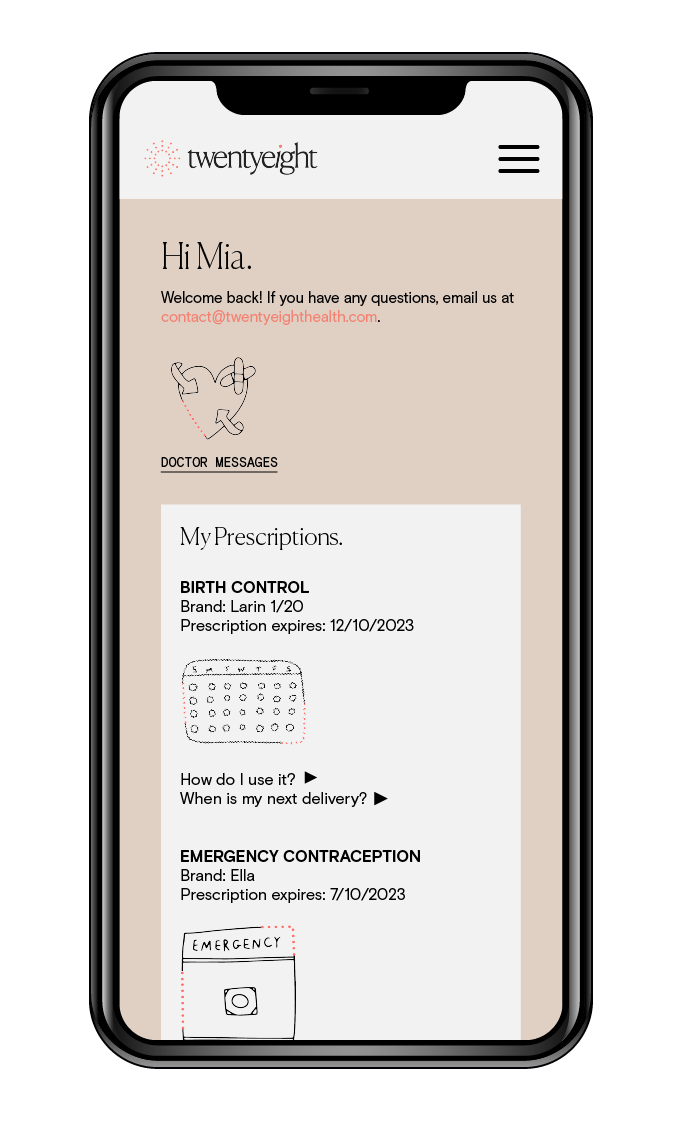
PHILADELPHIA- The Fund for Health, a joint initiative of Penn Medicine and the Wharton Environmental, Social, and Governance (ESG) Initiative is now backing Twentyeight Health, an online platform and telemedicine service designed to expand reproductive health care access for women from underserved communities. The Fund for Health, launched in 2021 as a new means to drive change through strategic investment that positively impacts social determinants of health, joins the latest round of funding to support the three-year-old startup.
This makes Twentyeight Health the seventh company to receive investment through the Fund for Health. In total, the fund has made $1.6 million in investments since it began.
Launched in 2019, Twentyeight Health combines an online intake platform and telemedicine connections with health professionals (via phone calls or text messages) to facilitate prescription and delivery of medicine ranging from birth control to prenatal vitamins or, now, even COVID-19 testing kits. As a part of its mission, Twentyeight Health donates two percent of its revenues to women's reproductive health non-profit organizations.
"The student investment team in the Fund for Health recognized Twentyeight Health's innovations and how they position the company to address challenges in women's health, especially for underserved communities here in Philadelphia. It's the right fit for what we're hoping to do with our investments," said Rajith Sebastian, co-director of the Fund for Health and the head of Impact Investments at the Wharton Social Impact Initiative.
Since it began, Twentyeight Health has expanded across the United States and is available to residents in 34 states and the District of Columbia.
"With this funding, we look forward to expanding the continuum of care by providing additional sexual and reproductive health services and prenatal services," said Amy Fan, Twentyeight Health co-founder. "It's coming at a time of significant growth for our company."
Data suggests that than 19 million women in the United States live in "contraceptive deserts," meaning that they don't have easy access to the full range of contraceptive methods. And even when clinics and other social services organizations are nearby, work or childcare obligations or transportation difficulties may make it hard for women to seek care when facilities are open, and costs of medicines and contraceptives may put these options out of reach.
"It's paramount that we address inequity in women's and reproductive health with creative strategies, including through tools patients can use to get crucial information and access to care from their own homes, on their own time," said Elizabeth Howell, MD, chair of Obstetrics and Gynecology at Penn Medicine. "Twentyeight Health's approach provides women with reliable access to resources, autonomy, and convenience, all of which are crucial to helping women maintain their best health throughout their lives"
Twentyeight Health's co-founders noted a strong match with the Fund for Health because of their shared visions for public health.
"Since its launch, the Fund for Health has done incredible work to ensure that lower-income Philadelphia residents can access the health care they deserve," said Twentyeight Health co-founder Bruno Van Tuykom. "We are honored to receive an investment from this fund, and to have the opportunity to collaborate with this team as our company enters its next phase of growth."
The most recent companies that received investment from the Fund for Health were Stimulus, a company focused on helping businesses make equity-informed decisions when choosing suppliers, and Fabric Health, a startup that partners with laundromats to improve access to health care at the community level. And in June, the Philadelphia 76ers' managing partner Joshua Harris and his wife Marjorie Harris announced that they would invest $1 million in companies selected by the Fund for Health.






